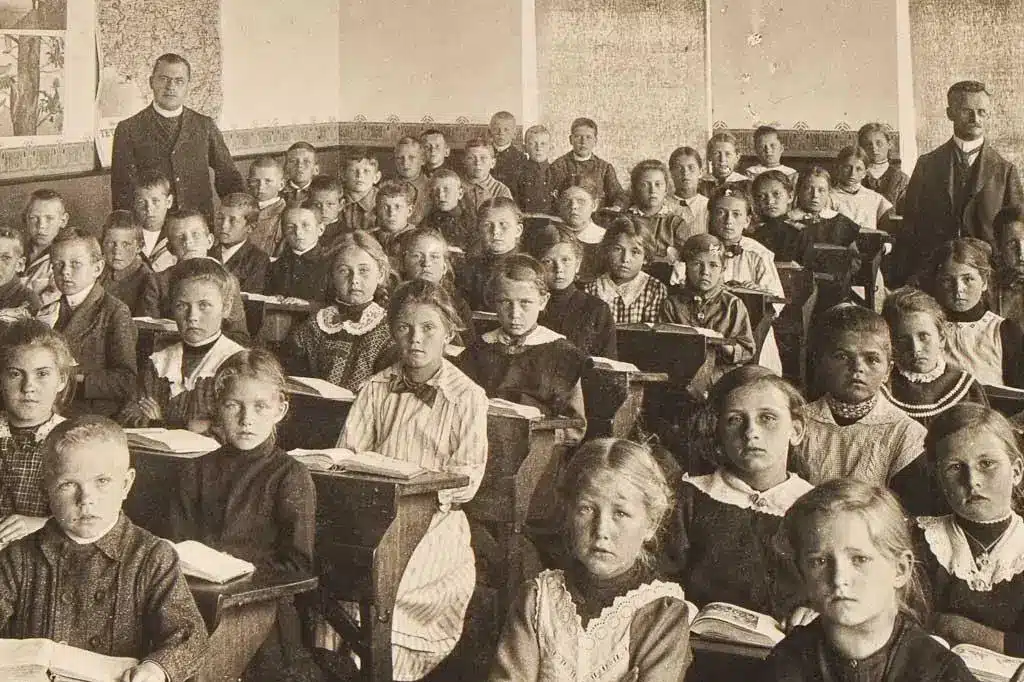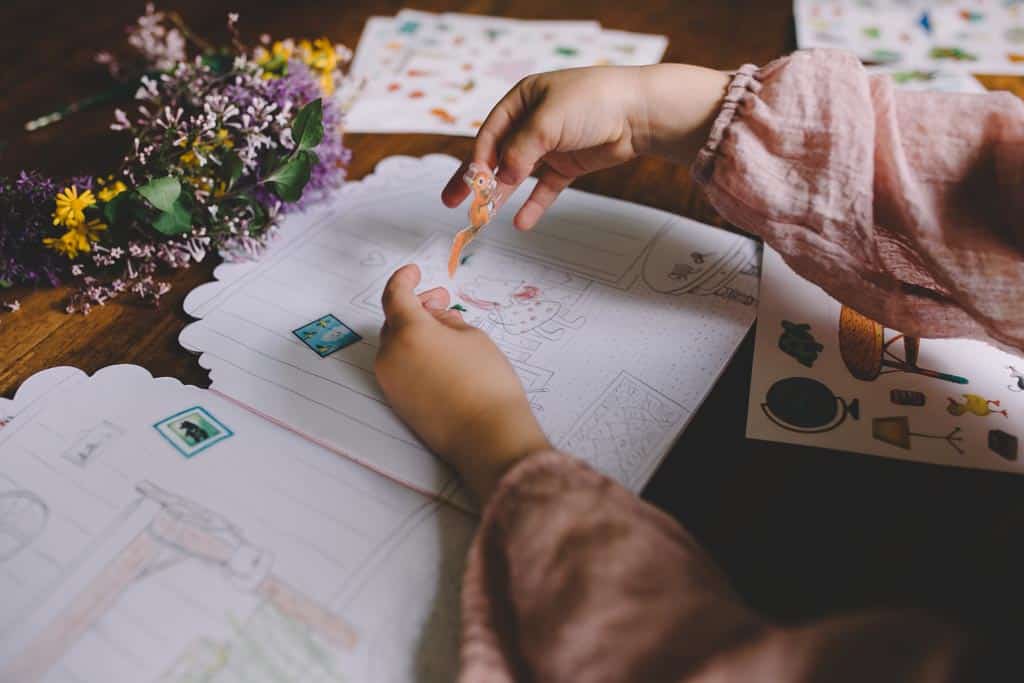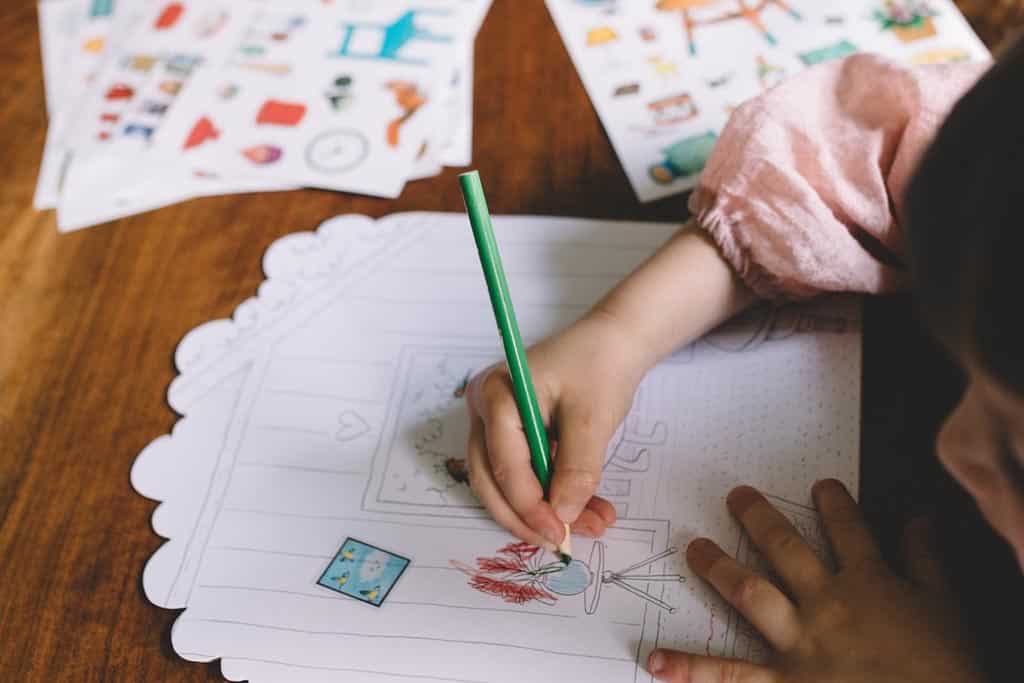Do you worry your child can’t sit still for more than a few minutes? Will she struggle to concentrate when she starts school?
How can you help your child to focus?
Rightly or wrongly, being able to ‘sit nicely’ is a behaviour that most teachers will reward with praise, not only because it’s quite stressful trying to teach a room full of pin-balling children, but also so that children learn how and when it’s time to focus.
Put simply, children who can’t control their minds and bodies when they need to, will find it harder to progress through the curriculum they are presented with. How can you learn if you can’t focus?
The good news is, most of us have witnessed our children sit motionless in front of CBeebies or on a tablet for some considerably lengthy stretches. Here then, is proof that they can be fidget-free and wholly absorbed by something when they need to be (although this is not to suggest that hours spent watching Mr Bloom is the best way to develop your child’s concentration skills!)
Here we outline some ideas for developing the skill of paying attention, by which we actually mean three core skills: listening, looking and focusing.
Kim’s Game
Fill a tray with six to eight random items – this could be anything from a hairbrush or a mug to a shoelace or a banana. Now ask your child to look at the tray and try to memorise what’s on there. After no more than 20 seconds, cover the tray with a tea towel and ask your child to look away as you remove an object from the tray and take the tea towel away. Then ask your child to look again at the tray and try to remember which item has disappeared.
Spot the Difference
Eagle-eyed observation skills are required for this simple, fun activity which can be found in most children’s magazines. Evgeniya, our illustrator, has produced one here of Ferdinand, the One Hundred Toys fox, that’s free for you to download.

Where’s Wally books are an extension of this idea (and are a great way to win five minutes’ silence on a long car journey)
Listening walk
Make a list of the sounds you’re likely to hear on your walk. For example, it might be seagulls or a stream, traffic signals or music from a shop. Give your child a clipboard and a pencil and tick off all the sounds as they are heard.
Simon Says
This is a classic game for paying attention, especially if you have friends over to play. One player takes the role of Simon and issues instructions (usually physical actions like stand on one leg! or put your fingers in your ears!.) The other players should do what Simons says, but only if the instructions are prefaced with ‘Simon Says.’ As each player gets eliminated for doing it when they shouldn’t, it’s the one who listens and distinguishes between genuine and fake commands who will win the game.
See a show
A children’s concert or other event such as a play, is excellent practice for sitting through assembly or story time.
Magazines and colouring books
Activities that require an extended period of focus to complete are good practice for spending time on one thing. Colouring pages, word searches and pen-control activities will all help your child feel prepared when they are asked to settle down at school.
Paying attention is the closest thing to a superpower that a schoolchild can have. The ability to notice, to focus, and to stay on task helps them to learn, but also to have fun. Attention is needed as much for art, sport and music as it is for academic success. It doesn’t come easily to most four-year-olds, but the rewards are worth it.
Take a break to improve concentration
It’s hard to concentrate when your energy has taken a dip. We all sometimes need some fresh air and a chance to stretch our legs before returning to our desks. It’s no different for our children. Whether you are teaching your child to read or giving her an afternoon with the art materials, her focus will be better if she comes to it fresh.
Final word
It’s easy to help your child focus although the results are the work of many years. Make focus something you work on every day. It needn’t be for long. Each time you play one of these games you cement your child’s ability to concentrate.
The benefits will last a lifetime.
For more school-related tips, read our Starting School Guide.
Are you ready for school?
Do you have a preschooler? Would you like them to develop some key skills before starting school? How wonderful to go into school on that first day feeling like you belong.
Get Set Five is a year-long course full of fun and free activities to do with your child.




